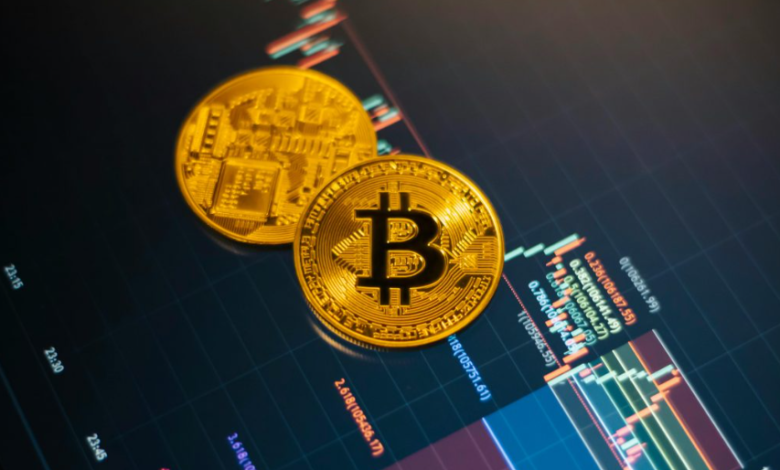The Ultimate Guide to Choosing a Zero-Hack Crypto Exchange in 2025

In 2025, cryptocurrency adoption is at an all-time high—but so are the risks. The rise of cyber attacks and data breaches has created an urgent demand for a zero-hack crypto exchange, a platform that ensures ironclad safety and peace of mind for users. Whether you’re a seasoned investor or a newbie to digital assets, choosing a hack-proof exchange can mean the difference between fortune and disaster.
Let’s dive into what makes these platforms unique and how you can protect your assets by making informed decisions.
Understanding the Need for Hack-Proof Exchanges
Rise of Crypto-Related Cyber Attacks
Over the past decade, hackers have stolen billions from crypto investors. High-profile cases like Mt. Gox, Coincheck, and Bitfinex shook the industry and eroded trust. These breaches weren’t isolated events—they were systemic failures in security.
Historical Losses from Major Exchange Hacks
| Exchange | Year | Amount Stolen | Cause |
|---|---|---|---|
| Mt. Gox | 2014 | $450 million | Poor security practices |
| Coincheck | 2018 | $530 million | Lack of cold wallet usage |
| KuCoin | 2020 | $275 million | Compromised private keys |
Why Security Is the #1 Priority
Security isn’t a feature—it’s a necessity. With regulatory scrutiny increasing and user awareness growing, exchanges are under pressure to be more than just convenient. They must be bulletproof.
What Does “Zero-Hack” Actually Mean?
Defining a Zero-Hack Crypto Exchange
A zero-hack crypto exchange refers to a platform that has maintained an unbroken record of security since its inception. No breaches, no losses, and no compromises.
Real-World Examples and Standards
These exchanges typically follow elite security standards, including:
- ISO/IEC 27001 certification
- SOC 2 compliance
- Regular penetration testing
Limitations and Misconceptions
No system is technically 100% unhackable. However, zero-hack exchanges operate with risk mitigation so advanced that the possibility of a breach becomes negligible.
Core Features of a Zero-Hack Crypto Exchange
Cold Wallet Storage and Multi-Sig Wallets
Most user funds are stored offline in cold wallets, inaccessible from the internet. Multi-signature authentication adds another layer of complexity, requiring multiple private keys for any withdrawal.
End-to-End Encryption and SSL Security
Top exchanges encrypt user data and transactions with military-grade standards, preventing data interception and manipulation.
Two-Factor Authentication (2FA)
From login to withdrawals, 2FA ensures only the rightful owner can authorize actions.
Regular Third-Party Security Audits
External security audits validate the strength of an exchange’s defenses, often leading to published security ratings.
How These Exchanges Maintain Bulletproof Security
AI-Powered Threat Detection
Artificial intelligence constantly scans for unusual patterns that may indicate an attack.
Bug Bounty Programs
Ethical hackers are rewarded for identifying vulnerabilities—fixing issues before they can be exploited.
Real-Time Withdrawal Monitoring
Anomalies in withdrawal requests trigger alerts and, in some cases, freeze actions for manual review.
Isolated Server Infrastructure
Segmented and isolated servers mean one breach doesn’t compromise the whole system.
Comparing Zero-Hack Platforms vs. Traditional Exchanges
| Feature | Zero-Hack Exchanges | Traditional Exchanges |
|---|---|---|
| Hack History | None | Multiple incidents |
| Cold Storage | 90%+ | 50–70% |
| Audit Transparency | High | Medium/Low |
| User Trust | High | Mixed |
| Insurance Coverage | Yes | Rare |
Zero-hack platforms clearly offer superior peace of mind.
Top 5 Zero-Hack Crypto Exchanges in 2025
- Kraken
- Gemini
- Bitstamp
- Crypto.com
- Zodia Markets
Each has a stellar record, robust compliance policies, and zero historical hacks.
Regulatory Compliance and Security Laws
- KYC and AML (Know Your Customer and Anti-Money Laundering) prevent illicit access.
- GDPR and Data Privacy: European standards ensure customer information is protected.
- ISO Certifications: Showcases exchange dedication to global cybersecurity standards.
Red Flags to Avoid When Choosing a Crypto Exchange
- No mention of cold storage
- Lack of published audits
- Dubious founders or vague team info
- No 2FA or email alerts
- Sudden downtime without explanation
How to Personally Stay Safe Even on Secure Platforms
- Use hardware wallets for long-term holdings
- Enable all available security features
- Avoid public Wi-Fi and use VPNs
- Bookmark exchange URLs to avoid phishing
- Never share private keys or seed phrases
The Role of Decentralized Exchanges in Zero-Hack Future
While DEXs remove the central point of failure, they come with trade-offs like lower liquidity and limited customer support. However, they show promise for fully trustless, hacker-resistant trading.
The Future of Crypto Exchange Security
Expect to see:
- Multi-Party Computation (MPC) wallets
- Zero-Knowledge Proofs (ZKPs) for data security
- Enhanced user control and data sovereignty
Security innovations are racing to stay ahead of hackers.
Real-Life Case Studies: Hacked vs. Hack-Proof Exchanges
Mt. Gox vs. Gemini
| Platform | Result |
|---|---|
| Mt. Gox | Lost $450M due to internal vulnerabilities |
| Gemini | Zero hacks since launch, fully regulated |
Lessons? Due diligence and regulation matter.
User Testimonials: Why They Switched to Zero-Hack Exchanges
“I moved to Gemini after a phishing attack on my old exchange. Never felt safer.” – Karen T., Florida
“Kraken’s bug bounty program gave me confidence in their security.” – Dev R., India
Myths About Crypto Exchange Security
- Myth: Big names = secure
Truth: Size doesn’t guarantee safety - Myth: 2FA is enough
Truth: It’s just one piece of a much larger puzzle
How to Transition to a Zero-Hack Exchange
- Research and compare exchanges
- Transfer small amounts first
- Enable all security settings
- Withdraw unused funds to cold storage
A step-by-step migration ensures no loss during the transition.
FAQs About Zero-Hack Crypto Exchanges
Q1: Can an exchange really be unhackable?
A: While no system is truly unhackable, some exchanges use protocols so secure that the risk is nearly zero.
Q2: What’s the safest way to store crypto?
A: A combination of using a zero-hack exchange and a personal hardware wallet.
Q3: How do I know if my exchange is secure?
A: Look for audit reports, security certifications, and no history of breaches.
Q4: Are decentralized exchanges safer?
A: They remove the central failure point but often lack user-friendly protections.
Q5: What if a zero-hack exchange is hacked?
A: Top exchanges have insurance policies to cover such events.
Q6: Is KYC mandatory for all secure exchanges?
A: Most regulated exchanges require it to comply with legal frameworks.
Conclusion: Invest With Confidence in a Zero-Hack Future
In an increasingly volatile digital world, securing your assets is non-negotiable. Choosing a zero-hack crypto exchange isn’t just smart—it’s essential. From cold wallets to regulatory compliance, the safety of your funds begins with choosing the right platform.





